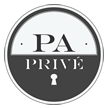Hopefully you’re reading this having had a fabulous holiday; and hopefully your tan is nicely topped up too! But now, with a huge number of opportunities popping up every day, it’s a great time to look for a new job.
So, here’s Tate’s handy summary of the things you should be thinking about before your next interview.
Preparation
These simple bits of preparation could make a big difference, but are often overlooked:
- Test the route – candidates still regularly arrive late to interviews, so practice your journey carefully
- Do your research – interviewers often cite candidates’ lack of knowledge about their business or industry as a significant issue. Follow them on social media, and show an up-to-date awareness of what they’re up to
- Carefully examine the instructions you’ve been given for your interview. Failure to provide anything they’ve asked for will seriously damage your chances
Interview questions
We can’t possibly predict what you’ll be asked, but we know from experience the kinds of questions that are particularly common. Here are a few examples:
Give me an example of how you’ve dealt with a difficult situation…
Be succinct and positive. See your answer as a story with a beginning, middle and end. The beginning is the problem you faced, the middle is the approach you took, and the end is how successful it was.
What is your biggest weakness?
No interviewer is free of weaknesses, and they don’t expect you to be either. Admit a weakness but frame it in a positive way; you’re aware of it, and you’re addressing it.
Why do you want to leave your current job?
Don’t moan about your employer; it will make you seem like a negative person. If you can, focus on your career, and how this role will help you to develop it.
Body language
There’s a lot to plan before an interview, which makes it easy to forget what you’re doing physically.
So, don’t obsess over your body language, but do remember these simple things:
- Smile! It always helps
- Eye contact is important, especially early on, but keep it natural
- Sit upright – slouching conveys negative traits





